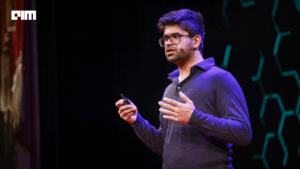In 2023, as ChatGPT’s user base rocketed from millions to hundreds of millions, OpenAI faced a familiar bottleneck: its small analytics team couldn’t keep up with the surge in insight requests. The company needed instant answers: what was driving growth, where users were churning, why ARR dipped last week. Building internal dashboards to answer those questions would have taken months. Instead, OpenAI adopted Sundial.
“We went from raw logging to comprehensive data visibility virtually overnight,” said David Sasaki, VP of Analytics and Insights at OpenAI. “Sundial automated complex data engineering work that would have taken our small team months to build internally.”
Founded in 2021 by former Meta executives Chandra Narayanan and Julie Zhuo, Sundial is an AI-powered analytics platform designed to compress the time between observation and action, and interpret data. In a landscape crowded with dashboards, notebooks, and fragmented data pipelines, Sundial offers an integrated platform that marries AI with expert analytical frameworks to help companies make better decisions faster.
From Meta Playbooks to a New Kind of Data Platform
Both Narayanan and Zhuo brought years of experience from Meta, where they saw firsthand what great data-informed decision-making looks like. Extreme alignment, curiosity, and urgency were the hallmarks. They soon realized most companies lacked the tools to replicate that level of rigor and speed.
“I’ve held a deep conviction that all analysis can be automated,” Narayanan wrote in a LinkedIn post announcing Sundial’s funding. “Not just surface-level reporting, but the most intricate, nuanced, and strategic reasoning.”
That belief now sits at the core of Sundial’s platform. It uses agentic workflows and analytical templates to answer questions as simple as “What was our ARR last month?” or as complex as “Why did it decline?” The idea isn’t just to surface data, but to reveal the relationships behind it: patterns that, if understood in time, can shape critical business decisions.
“Sundial is the only data company focused on reducing the time to quality decisions, not just serving up charts, but guiding action,” said DJ Patil, the former U.S. Chief Data Scientist and partner at GPV, who led Sundial’s $16 million Series A round. The company has raised a total of $23 million from investors including Sequoia Capital, Tribe Capital, and individual backers like Amjad Masad, Shishir Mehrotra, and Tobias Lütke.
Productized Intelligence at Scale
Sundial’s approach revolves around a concept it calls “opinionated intelligence.” Rather than presenting endless dashboards or leaving interpretation up to the user, the platform offers structured, pre-built analysis templates across areas like retention, monetization, cohort behavior, and user segmentation.
For instance, users can automatically surface cohort-specific changes in retention, track the behaviors of power users over time, or identify the root cause behind a sudden drop in conversion.
The platform integrates with data warehouses like Snowflake and Redshift and connects with communication tools such as Slack and Gmail, avoiding forcing users to export or restructure their data, enabling real-time querying while preserving existing roles and permissions.
The result: less engineering overhead.
Narayanan describes their goal as building systems that “mirror expert human thinking at scale,” rooted in the belief that business outcomes, like physical systems, can be governed by discoverable principles. “Even the most sophisticated analysis means little if it can’t be clearly communicated,” Narayanan wrote.
The analytics software market is saturated with tools promising self-service BI, real-time dashboards, and embedded AI.
It’s helps that Sundial has backing from some of the most experienced builders in tech, and early validation from demanding customers like OpenAI. The platform’s performance under extreme growth conditions gives it credibility in a market where scalability is often promised but rarely proven.
Still, Sundial’s broader challenge will be adoption across companies that don’t yet operate at the scale or speed of an OpenAI. Whether Sundial can deliver the same time-to-value in more traditional enterprise environments remains to be seen.











